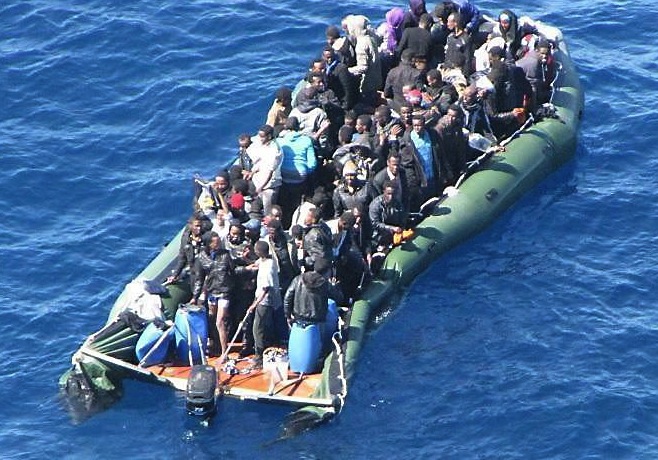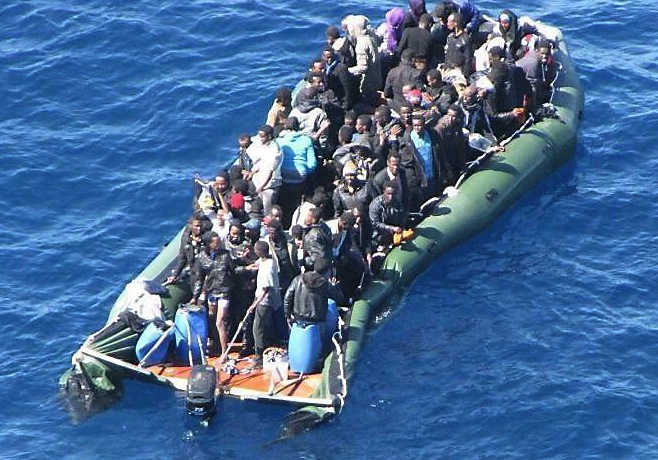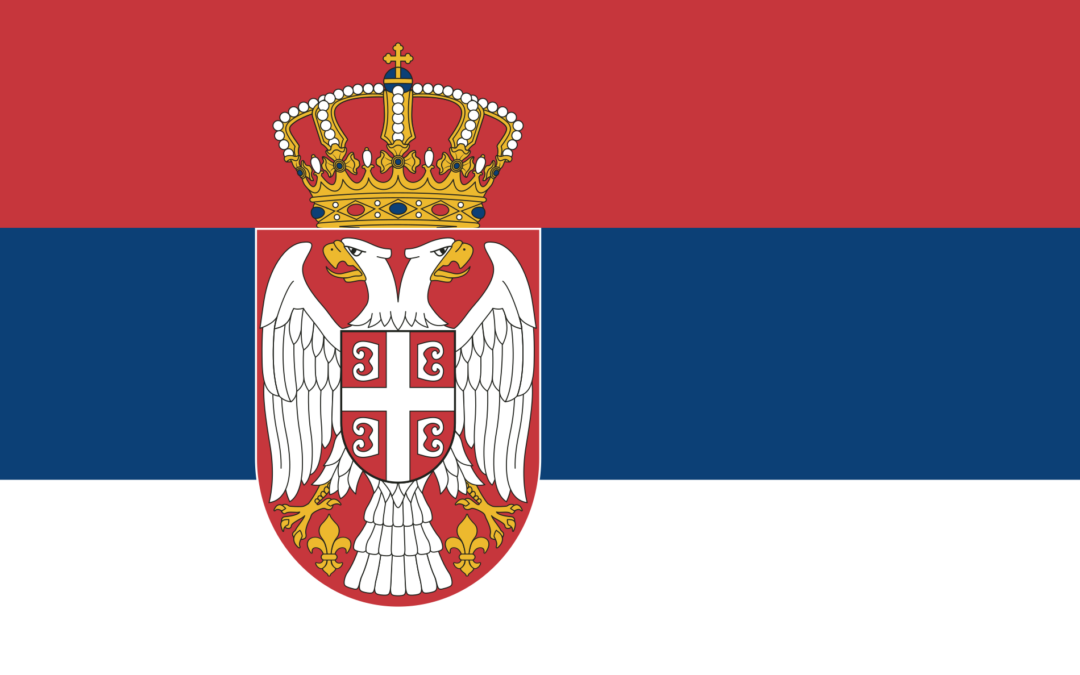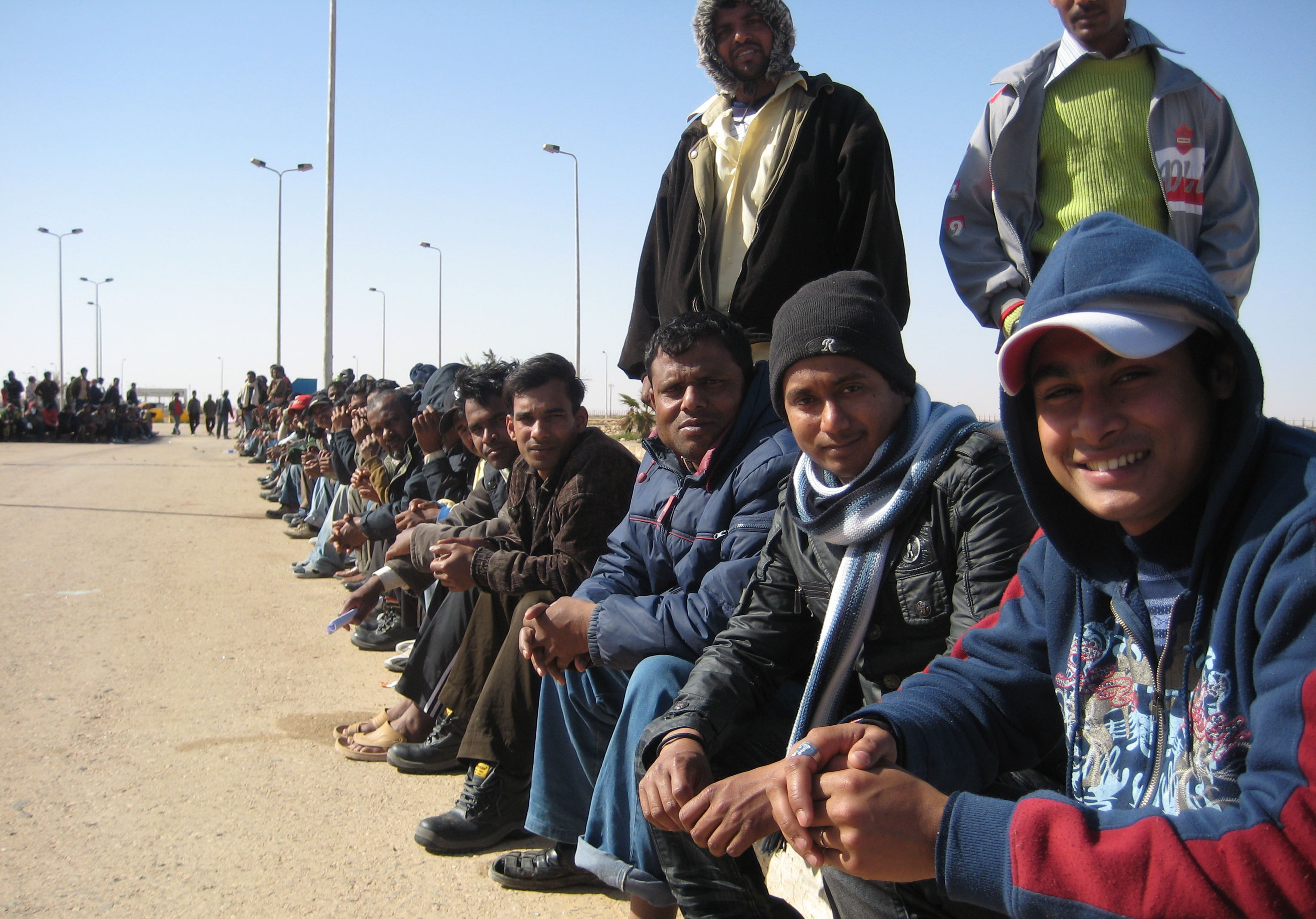
Jul 28, 2014 | News
Today the Consultative Forum on Fundamental Rights of Frontex published its first annual report.
The report intends to explain the functioning of the Consultative Forum, retrace Consultative Forum’s activities in 2013 and give a short outlook for 2014. It contains the main recommendations that the Consultative Forum made to Frontex and its Management Board in 2013 and the impact of those.
The Consultative Forum was instituted pursuant to article 26a of Frontex Regulation as revised in October 2011.
It is currently composed by:
- two European Union Agencies:
- European Union Agency for Fundamental Rights (FRA)
- European Asylum Support Office (EASO)
- four UN Agencies and Intergovernmental Organisations:
- United Nations High Commissioner for Refugees (UNHCR)
- International Organization for Migration (IOM)
- Organisation for Security and Co-operation in Europe, Office for
- Democratic Institutions and Human Rights (OSCE / ODIHR)
- Council of Europe (CoE)
- nine Civil Society Organisations:
- Amnesty International European Institutions Office (AI EIO)
- Caritas Europa (CE)
- Churches’ Commission for Migrants in Europe (CCME)
- European Council on Refugees and Exiles (ECRE)
- International Commission of Jurists (ICJ)
- International Catholic Migration Commission (ICMC)
- Jesuit Refugee Service Europe (JRS)
- Platform for International Cooperation on Undocumented Migrants
- (PICUM)
- Red Cross EU Office.
The Consultative Forum has the competence to assist the Executive Director and the Management Board in fundamental rights matters.
Frontex_Consultative_Forum_AR2014 (Report in pdf)

Jul 9, 2013 | News
The International Commission of Jurists (ICJ) today called on the Government of Malta to refrain from forcibly transferring a number of Somali nationals to Libya, where they are alleged to be at real risk of human rights violations and further transfer to Somalia.
According to media reports, the persons at risk of transfer are part of a group of some 102 persons, including 41 women and two babies, who arrived in Malta this morning.
The ICJ expresses its grave concern at the possibility that Somali nationals, who are alleged to be considered at risk of being subject to ill-treatment or persecution if sent back to Somalia, would first be sent back to Libya. According to the office of the United Nations High Commissioner for Refugees, in Libya, migrants face a “constant risk of exploitation, arrest and indefinite detention”.
The ICJ stresses that the European Court of Human Rights has ruled, in the judgment Hirsi Jamaa and others v. Italy, that sending back potential asylum seekers, including of Somali origin, to Libya, without individual assessment of their situation and access to asylum procedures, violates the European Convention on Human Rights, in particular the principle of non-refoulement, the prohibition of collective expulsion and the right to an effective remedy for violations of human rights.
The ICJ therefore calls on the Maltese Government to refrain from expelling or otherwise transferring to Libya any of the Somali citizens who arrived on Maltese shores today. The migrants must be fully informed of their right to apply for international or humanitarian protection under EU and Maltese law; and each of their cases must be examined on its individual merits.
Statement-ExpulsionSomalis-2013-Malta (download the statement)
Contact:
Massimo Frigo, ICJ Legal Adviser of the Europe Programme, tel: 41 22 979 38 05, e-mail: massimo.frigo(a)icj.org
Róisín Pillay, ICJ Director of the Europe Programme, e-mail : roisin.pillay(a)icj.org

Nov 5, 2012 | Advocacy, Cases, Legal submissions
 The ICJ and Amnesty International presented a third party intervention in the case Al Nashiri v Poland before the European Court of Human Rights.
The ICJ and Amnesty International presented a third party intervention in the case Al Nashiri v Poland before the European Court of Human Rights.
In the third party intervention, the ICJ and AI outlined developments on the principle of non-refoulement, on the human rights obligations in breach in the practice of “renditions” and “secret detention”, on enforced disappearances, on the international law of state responsibility both for human rights violations occuring on the territory of a High Contracting Party committed by another State and following return of a person to a third State, and the right to a remedy and to reparation.
ECtHR-ICJAI-AmicusBrief-AlNashiri_v_ Poland-2012 (download the third party intervention)

Oct 15, 2012 | Events
 The ICJ, OSCE and Group 484 are holding a training on migration and international human rights law starting on Tuesday 16 October in Kladovo (Serbia).
The ICJ, OSCE and Group 484 are holding a training on migration and international human rights law starting on Tuesday 16 October in Kladovo (Serbia).
The training has been organised by the Organisation for Security and Cooperation in Europe (OSCE) and the Serbian NGO “Group 484” and will be given by the International Commission of Jurists. It will focus on international protection of migrants and asylum seekers, the principle of non-refoulement, and human rights in expulsion procedures, drawing from the jurisprudence of the European Court of Human Rights, of the UN human rights systems and from EU law. The training will be centered on the ICJ Practitioners Guide no. 6: Migration and International Human Rights Law.
Serbia-agenda-migration-2012 (download the agenda of the training)
Photo credit: © Stabilisation Unit/DFID (the DFID has no involvement in nor does support this event)










